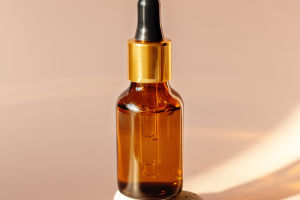
Essential oils are highly concentrated extracts derived from various plants. Used primarily in aromatherapy, these oils are sought after for their potential health benefits.
They can be applied topically or inhaled, and while some evidence supports their effectiveness, there are also concerns about their safety and the authenticity of certain oils on the market.
What Are Essential Oils?
Essential oils capture the essence or natural aromatic compounds of plants. Extracted through distillation or cold pressing, these oils are used in numerous wellness practices. Each oil is unique, offering different smells and properties based on the plant it's sourced from. While essential oils can benefit health, oils processed through chemicals or synthetic methods are not considered true essential oils.
How Do Essential Oils Work?
The primary use of essential oils is through aromatherapy, where they are inhaled to promote physical and emotional well-being. Inhaling essential oils stimulates the limbic system, a part of the brain involved in memory, emotion, and behavior. This connection can influence mood and may even affect unconscious functions like heart rate and blood pressure.
Some oils can also be absorbed through the skin, especially when combined with heat or applied to specific areas of the body. However, the extent to which these oils interact with the body remains under research.
Popular Types of Essential Oils
With over 90 types available, essential oils vary widely in their effects. Some of the most common oils and their associated uses include:
• Peppermint: Often used to boost energy and assist with digestion.
• Lavender: Known for its calming effects and ability to reduce stress.
• Sandalwood: Helps with focus and relaxation.
• Tea Tree: Used for its antibacterial and immune-boosting properties.
• Chamomile: Effective for promoting relaxation and improving mood.
Each of these oils is believed to have specific benefits, ranging from mood improvement to relief from physical ailments.
Health Benefits of Essential Oils
Research on the health benefits of essential oils is still in its early stages. Here's a look at some of the most common uses:
Stress and Anxiety
Aromatherapy has been shown to help relieve stress and anxiety in some individuals. While initial studies are promising, it's challenging to conduct blind studies due to the nature of scent-based therapies. Oils like lavender and chamomile have been particularly linked to reduced feelings of stress.
Headaches and Migraines
Studies have found that oils like peppermint and lavender can be effective in reducing headache pain when applied to the skin. Although results are mixed, these oils are commonly used for migraine relief.
Sleep and Insomnia
Lavender oil is well-known for its sleep-enhancing properties. Many studies have shown that its aroma can help improve sleep quality, particularly for individuals dealing with insomnia or after childbirth.
Reducing Inflammation
Some essential oils may help with inflammatory conditions. Early research shows that certain oils possess anti-inflammatory properties, though more research is needed to confirm their effectiveness for human use.
How to Use Essential Oils Sourced from Herbs | doTERRA Herbal Essential Oils Overview
Rigel Smith
Antibiotic and Antimicrobial Effects
With rising concerns over antibiotic-resistant bacteria, essential oils are being explored for their antimicrobial properties. While test-tube studies have shown some positive results, it remains unclear whether these oils can treat bacterial infections in humans.
How to Choose the Right Essential Oils
When purchasing essential oils, it's crucial to select high-quality products. The purity of the oil should be verified by checking for any additives or synthetic ingredients. Authentic essential oils are typically extracted through distillation or cold pressing, ensuring minimal alteration of the plant's natural compounds.
To ensure quality, choose oils from reputable brands with a proven track record in producing pure oils.
Essential oils offer a range of potential benefits, from stress relief to improved sleep and mood enhancement. However, they should be used with care due to their potency. Though research continues to explore their health effects, essential oils can be a valuable addition to your wellness routine when used properly.


